Jesus Egon Christ: An interview with directors David and Saša Vajda
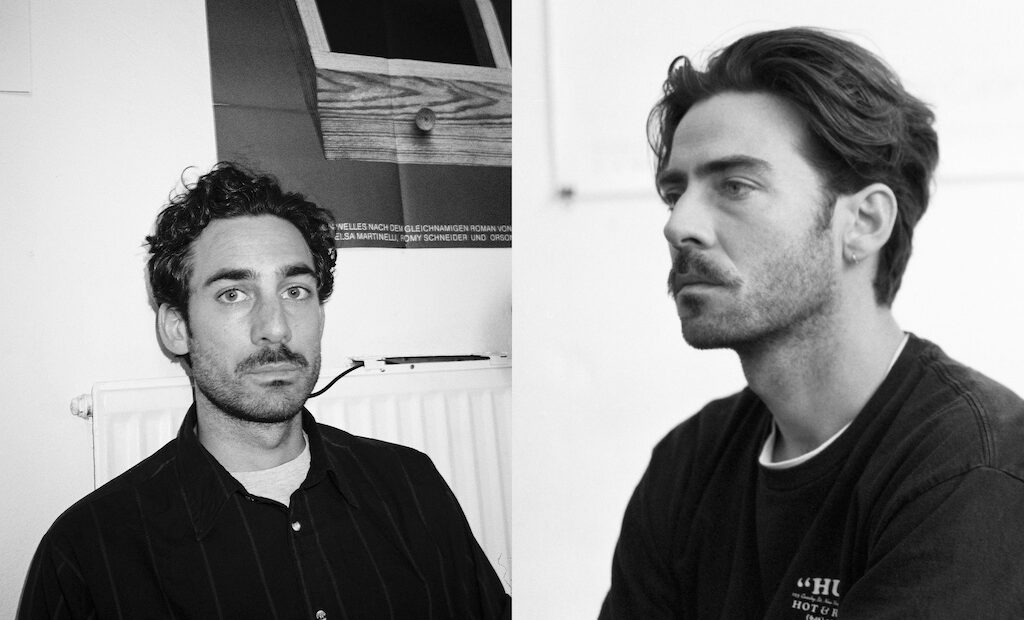
German director and producer brothers David and Saša Vajda deliver their docufiction feature, Jesus Egon Christus, to premiere at Berlin Film Festival this year. The film uneasily exposes the psychosis and unpredictability of its main protagonist, Egon, after he arrives as a newcomer into an evangelical rehab centre for addicts, where Jesus becomes a form of drug substitution.
The film pushes the boundaries of fiction by starring non-professional actors, with the addition of improvised scenes and 360-degree sets so the camera can move freely in a more conventional documentary style. The directors also try to capture the authenticity of Egon’s oddball complexities, having gleaned over two years of personal research at various methadone clinics and needle exchanges and collated stories from their neighbourhood streets in Neukölln, Berlin. We sat down with David and Saša to discuss why they chose to make this film, how they cast for the project and their thoughts on the global pandemic and its effect on the film industry.
What inspired you to tell this story about a group of social misfits in an isolated rehab centre? Where did the idea come from?
Saša Vajda: It was a very organic process because we live in Berlin, Neukölln, which can be a very rough area, and you have a lot of mental health issues and drug addiction around, so it’s very omnipresent. You bump into heroin addicts on a daily basis, and that’s really where it all started – just in our neighbourhood. The focus wasn’t only on addiction itself; it was also kind of looking for the stories of people who have drug-induced mental health issues, who live in the streets, because those are very complex stories.
David Vajda: These issues are so, so visible and really everywhere. So if you walk around such a way that you see it, you see at least two, three, four addicts today and one person talking to himself or herself. So we really wanted to look behind this mask of misery and try to get to know the people behind their conditions.
How did you approach your research on such complex issues? Was it hard asking people with trauma to open up?
DV: We spent over two and a half years in different institutions, casting people, collecting stories in places such as shelters, methadone clinics and so on. So during that time, we kept developing the script and kept incorporating stories we heard from the characters we met.
I assume there is a certain trust involved, and people would open up and also agree on being cast for the film, and being put into the film. That’s where we gained a certain confidence also to turn it into a film and to write the screenplay.
SV: It’s a very sensitive thing because it’s very much based on mutual trust. So you can’t just go to a place and just pick someone I don’t know, like a lemon or something and just squeeze out the juice and then make a story out of it! To listen to those stories, they’re just very, very traumatic and involve a lot of hardship and pain and suffering.
How did you go about the casting process for the film, in particular for the main protagonist Egon (Paul Arambula)?
DV: We constantly met several people along the way. We’d have people in mind, but then they couldn’t do it because of their addiction or because of another issue. In the end, a couple of people just really stuck to the project and Paul… I actually saw him at an art performance when we were looking for someone. It turned out that he’s American and he doesn’t even speak German, but his understanding of sounds and of language is so good that he was able to play this role in German. We rehearsed it with him and it was just the perfect match.
Paul really knows the films that inspired us to make us partner up with him. So there was also an artistic understanding from the very beginning.
Were there any particular films of a similar genre that influenced you on your creative journey?
SV: Well, there are a couple. A Woman Under the Influence… John Cassavetes, as a director or in general, his approach to filmmaking was, and remains, very inspiring to us. Obviously, neorealist films from Italy, like from the 1950s. That’s also where this approach was kind of born, to work with non-professional actors. Films like Julien Donkey Boy also had a certain impact on the creative process too.
Why did you reveal the past of every other character but not Egon’s traumas, when he is so integral to the film?
SV: Well the stories of the other characters are told through Egon and, although he’s the main character, I think he gives you certain insights, as odd as he might be. But there wasn’t any, like, conceptual reason for that.
DV: These other voiceovers or the others’ backstory are from his perspective. So, I mean, the whole film really is based around him, so it would be kind of weird if we spoke in voiceover about him I think.
Do you think it makes sense that vulnerable addicts use faith as a kind of substitution? Do you find that at all surprising?
SV: I mean, in a way, it makes a lot of sense because a lot of addicts go back and forth from addiction to substitution. And after, let’s say, I don’t know, a decade of going from methadone to heroin, from heroin to methadone, this is just an alternative solution. I mean, maybe not necessarily the solution, but an attempt to overcome addiction. But if you replace a drug with another drug, you won’t get to the root of the problem. I think there is a huge spiritual lack in Western society, especially in drug addicts. Maybe that’s also a reason why religion can be helpful.
DV: Just to add to this, it was surprising to find these places… We met this one addict who told us about the fact he’d had this accident. It’s a long story, but he woke up in hospital and this random guy he’d never seen before was sitting next to him praying for him, and then he took him to this evangelical institution that we visited too.
I mean, it’s not abusive, though people may say it is abusive in the sense that it’s a bit arbitrary because you have a priest, a self-proclaimed priest, who just did Bible school for a couple of months, in charge of people with very serious problems. On the one hand, they provide valuable, important social services because these people can show up, they get shelter, they get food and it’s free. They are provided with structure, which works pretty well for many addicts for a while. But at the same time, the person in charge hasn’t been through any kind of therapeutic training whatsoever, so it’s a person that doesn’t necessarily know how to deal with depression or does it just on the fly. So there is a lot of potential conflict there, and it’s not the safest environment for people with these kinds of issues. And I think that was a pretty surprising revelation.
You have talked about your method of “FictionDocu”. Can you tell us how that worked with the filming of Jesus Egon Christus?
DV: So in terms of how we shot the film, for example, we built sets that would allow us to shoot in both directions, that would allow us to react spontaneously to what was happening and to really, really accommodate the actor in the sense that the actors were able to move around freely, as they wanted. There were no marks on the ground that would limit them and their acting. We use the handheld camera for the whole shoot.
We also try to kind of take the fictional script to documentary style with our method of shooting and staging and so on to make a film that it’s very immersive and realistic.
SV: The other part is really on a conceptual level, somehow a documentary approach. Like, the fictionalised parts of the film are also based on stories we heard; it’s like reality and fiction are very close to each other the whole time. Obviously, the improvised scenes too are also almost documentary-like. There’s a certain realism to a documentary that is visible in parts of the film – not throughout the whole film, but there are certain certain scenes which kind of reflect that.
Are you excited to be premiering Jesus Egon Christus at this year’s Berlin Film Festival?
DV: Yeah, definitely! It took a lot of time to make this film because of the limited budget for the film. It was a big, big struggle making this film, and it’s just amazing to me that it’s been recognised for what it is.
During the pandemic we’ve seen many studios releasing films online. What’s your take on this? Do you think the greater accessibility is a benefit, with broader audience reach?
DV: Speaking about our film, for example, we made this film for the cinema, which doesn’t mean it can’t be shown on some streaming platform, but it’s a wholly and completely different experience from the cinema. I mean, the greater accessibility is a good thing, but shutting the cinema is a really big problem.
When we sit in the cinema, it’s still bad etiquette to take out your phone and you are forced to concentrate on one thing, and in these times I think that’s really important, because in our daily lives we are constantly distracted.
SV: Also you can’t replace the collective experience of watching the film in the cinema just by sitting in front of your laptop – it’s just not the same. We were also taught as children, by our dad, who was a filmmaker as well, that going to the movies is a holy experience. So what he did is when we went into the cinema and people were still talking and the movie started already and people were eating popcorn and it was very loud – so he would stand up and literally shout and say, “Silence.” You know? So we grew up like that. So for us, it’s very holy. It’s a shame that we know that we can’t have that experience at the moment. It’s just not comparable at all to watching the film on your laptop.
What do you hope viewers will take away from this film?
DV: Oh, wow. I mean, there’s no morals and there shouldn’t be a moral to this film because I think we kind of envisaged it as a film that is multifaceted, that has different moods. So there’s no single message, there’s no single thing, there’s no single topic… I hope it is an immersive film. I hope people will follow Egon because he understood something no one else did.
SV: I completely agree! Only Egan has the answer to that question.
What projects are you working on next and will you work together again in the future?
DV: We will work together again. It’s still questionable whether it’s the next project or the one after I’m thinking about. I have two ideas for films, but they’re still very vague. I’m actually right now in Mexico on the way to Guatemala for the long haul, working on something right now for the next couple of weeks…
SV: Yeah, I’m working on a coming-of-age story, but it’s still in the very, very early stage, and I’m writing the treatment at the moment, sticking to the same method we worked for the last film. But there is going to be a bigger dramatic composition to the whole thing. It will be a proper feature film again with non-professional actors. But it’s too early to talk about it, really.
Ezelle Alblas
Photos: Saša Vajda and Elena Peters Arnolds
Jesus Egon Christ (Jesus Egon Christus) does not have a UK release date yet.
Read our review of Jesus Egon Christ (Jesus Egon Christus) here.
Read more reviews from our Berlin Film Festival 2021 coverage here.
For further information about the event visit the Berlin Film Festival website here.

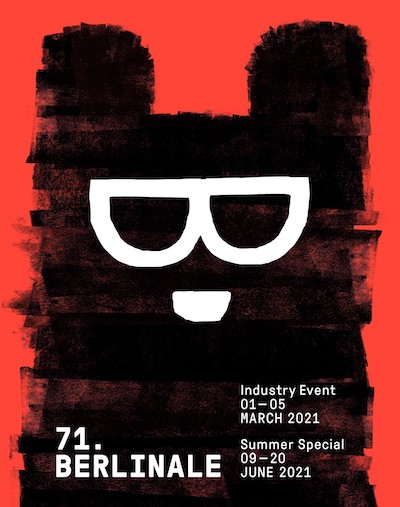















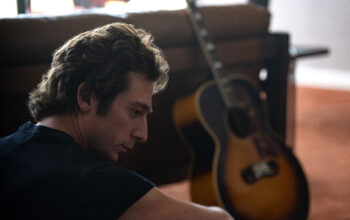
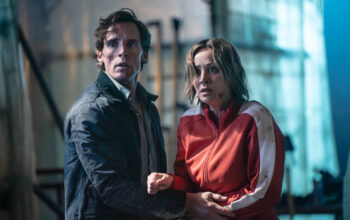

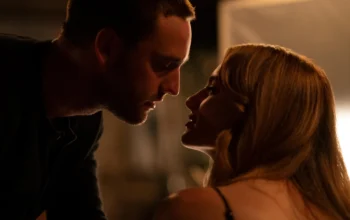




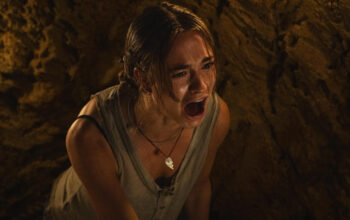
Facebook
Twitter
Instagram
YouTube
RSS